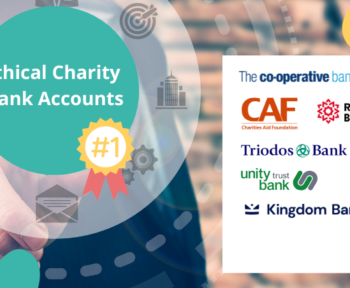Should my charity be preparing accounts on a receipts and payments basis or on an accruals basis? What is the difference between the two?
In this blog, Tim Wyatt, from Wyatt & Co Chartered Accountants, gives some answers to these really common fund accounting questions.
Receipts and payments based accounts
Charities with an annual income below £250,000 are often able to prepare receipts and payments accounts (unless they are charitable companies). Receipts and payments accounts are a simple form of accounting.
Money is accounted for based simply on the date it is received in or paid out of the bank or petty cash account. This type of accounting is sometimes known as cash-based accounting. The limitation of this simplified form of accounting is that you cannot track fixed assets, loans, investments, creditors and debtors as you would if you were creating accounts on an accruals basis.
Example: Gift Aid received from HMRC is accounted for based on when it arrives in the bank account (not based on which financial year it relates to).
End-of-year accounts created on a receipts and payments basis simply consist of a summary of:
- A summary of money paid in (receipts) and money paid out (payments) during the financial year
- A summary of cash balances (along with other asset/liability balances) at year-end.
HMRC provides a free template for charities creating accounts on a receipts and payments basis.
If you create accounts on a receipts and payments basis, then your year-end accounts might look like this example from Yardley Baptist Church.
Accruals based accounts
Charities with an annual income over £250,000, or that are charitable companies, will need to prepare accruals-based accounts that comply with the Charities SORP which stands for ‘Statement of Recommended Practice’. If you prepare accounts on an accruals basis, you allocate the costs or income of a particular activity according to when you incurred the liability, or when there is entitlement or certainty about income. This is not necessarily the date on which you received or paid out the money.
Example: Gift Aid received from HMRC is accounted for based on the financial year it relates to (not based on the date it arrives in the bank account).
If you create accounts on an accruals basis, then your year-end accounts should look like this example from St Laurence Church In Reading. As you will see, they are much more detailed than simple receipts and payments based accounts.
How do I know which accounting basis I should be using?
If you are unsure as to what accounting basis your organisation is using, here is how to find out:
(1) Size of income – Under UK law, charities with an annual income over £250,000 must create end-of-year accounts on an ‘accruals’ basis. Charities with an annual income below £250,000 usually (but not always) create ‘receipts and payments’ based accounts.
(2) Type of accounts – If your charity’s annual income is below £250,000, then check your prior year’s accounts. Financial accounts must state the accounting basis on which they are prepared. Accounts must be submitted each year to The Charity Commission, and are publicly available. You can find a copy of your accounts on the Charity Commission website.
For further help and information, speak to your independent examiner. You can also contact Stewardship (Christian Charities & Churches) or ACAT (Association of Church Treasurers) for further help, advice, and training.
ExpensePlus is a cloud-based fund accounting package used by hundreds of churches and charities. Within ExpensePlus you can set your accounting basis, and generate SORP-compliant reports. At year-end, you can simply provide your independent examiner access to ExpensePlus. This removes the need to find and send receipts and reports. To find out more, click here.






